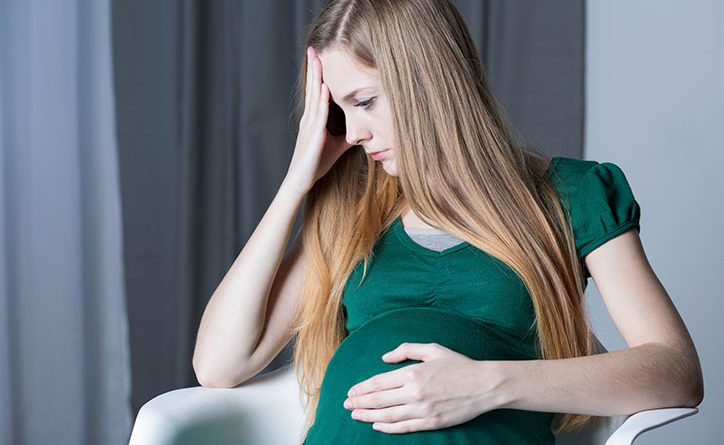Age is an important factor when considering pregnancy. It is statistically true that mothers who are 35 or older are more likely to experience a miscarriage. One factor that causes this is that chromosomal changes can affect how the egg is formed. The most fertile eggs are the first ones that a woman ovulates, and since a woman is born with all of the eggs she shall ever need, it would make sense that the older a woman gets, the less potent her eggs become. After the age of 35, the quality of a woman’s eggs start to decline. This is the reason that, statistically, mothers who are in older age who attempt to have children, experience abnormalities such as Down syndrome in their children.
Doctors suggest amniocentesis for those mothers within their second trimester. While not entirely associated with contributing to the condition of miscarriage, but still contributing to instances of premature delivery and stillbirth, another reason that women aged 35 and older may experience miscarriages is because they tend to have or acquire conditions such as diabetes and high blood pressure.
Risk Factors
A lot of women who miscarry will often not have any risk factors beforehand, while others may very well have lots of risk factors but still end up with a normal and healthy baby. Besides avoiding all of the usual risk factors that are associated with miscarriage, such as unhealthy lifestyle choices, there is not much that can be done to affect the outcome of a pregnancy.
Not everyone that has risk factors for miscarriage will do so, and that a miscarriage can happen even without any of the risk factors present, but in most cases, even those with a great risk of miscarriage will end up having a normal pregnancy. However, miscarriage symptoms are a sign that there is a problem, but not necessarily a sign that a miscarriage is happening. If you have any of the following symptoms, please see a doctor.
Miscarriage Symptoms
- Vaginal Bleeding – This is the first sign of miscarriage for many women, but heavy bleeding may not always be a sign of miscarriage.
- Severe Abdominal Pain – This may be a sign of an ectopic pregnancy, a very dangerous and life-threatening condition in which the baby is implanted outside of the uterus. If you are experiencing severe pain outside of the uterus that should serve as a warning and go see a doctor immediately.
- Fading Pregnancy Symptoms – An unreliable indicator of miscarriage, as symptoms may always fluctuate, but this symptom should not be ignored and should be mentioned on the next visit to your doctor.
- Not feeling the baby move inside
- Preterm Labor
- Contractions every 5 to 10 minutes or more frequently
- Changes in vaginal discharge
- Pressure in the pelvis
- Cramps similar to menstrual cramps
- A backache that is very dull
If you are experiencing any of these symptoms, see your doctor immediately. Note that if you are experiencing these symptoms you may still go on to have a regular pregnancy, but it is best to check with a doctor to be sure.
Medical Conditions that Contribute to Increased Miscarriage Risk
- The age of the mother
- Conception after fertility
- Cases of being very underweight or overweight
- STDs
- Chronic medical problems
- Bacterial and viral infections during pregnancy
- Lifestyle Factors Associated with Miscarriages
- Substance Abuse
- Alcohol Consumption
- Smoking (as well as paternal)
- Exposure to harmful chemicals
- Taking of medications and painkillers
Other Factors
Along with all of the risk factors and symptoms associated with miscarriage, there are factors that are still undecided upon and that don’t have any bearing on getting a miscarriage. Factors still undecided upon as risks include high caffeine intake, exposure to low levels of radiation, high levels of exercise, and high levels of stress and anxiety. The factors not associated with miscarriages are using birth control pills and having sex while pregnant.
With all of these risks and symptoms associated with miscarriage and pregnancy in general, it is important to keep your doctor informed of your progress and go for regular check-ups in order to be sure that you have a safe, happy and healthy child.
Featured Image: Thinkstock/ KatarzynaBialasiewicz




